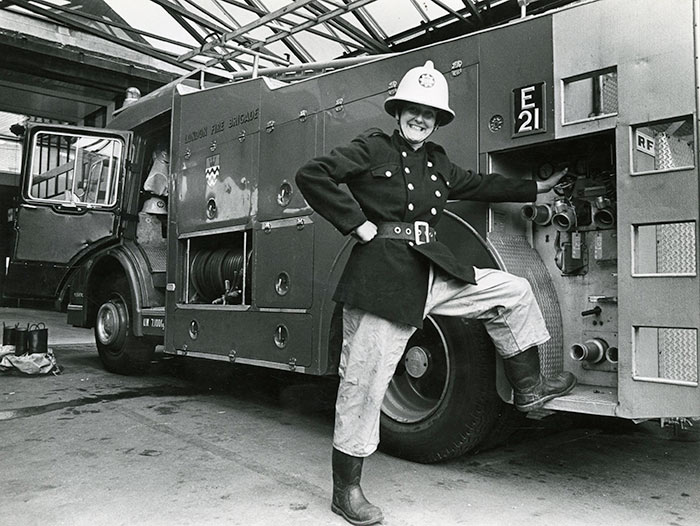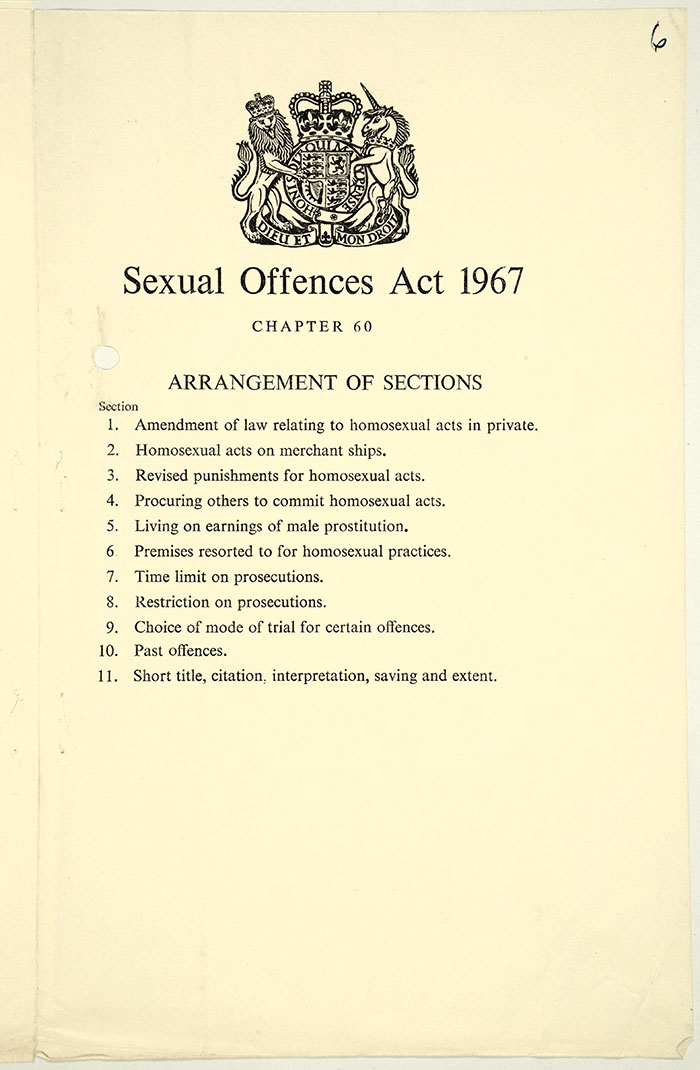
Sue Batten, London’s first female firefighter Image courtesy of Brenda Prince/ Format Photographers Archive, Bishopsgate Institute. Catalogue Reference: FORMAT
Whether it be a gigabyte of data, a single file or 230 boxes of papers, UK archives actively collect records to enable stories of the past to be told.
By managing longstanding deposit agreements; cultivating or nurturing relationships; purchasing or salvaging records – the business of collecting archives enriches society intellectually, culturally and economically.
Documenting what an archive collects; why, when and how records are transferred; and identifying gaps in collections, are all key to active collections development and ensure records are cared for and made accessible for research and interpretation. Read our new collections development guidance online.
Archives contribute to our annual Accessions Survey by giving us information about their records: what they are and who created them. We share this information – which tells us so much – with researchers and use it to inform our work to support the sector.
As a qualified archivist, my role here is largely focused on facilitating the dissemination of collections information and the services we offer rather than on the care of physical or digital records.
I sometimes hanker for the practical tasks associated with the profession – cataloguing, interpreting records and helping users, but in working with accessions information gathered from a wide range of archives services, I am afforded the opportunity to read descriptions of some 16,000 records taken in by over 260 archives across the UK each year.
This enables me to spot themes, highlight collections of social or historical value and to share this information with all our audiences, including researchers and the wider sector.
One of the many themes that has emerged from a number of collections taken in during 2017 – is gender and equality.
This is particularly pertinent in the year which marks 100 years since the passing of the Representation of the Peoples Act and the award of the vote to over 8 million women.
On reviewing this information I began to wonder how the most recent information that we have about archives’ collecting activity reflects or represents current and past issues concerning gender equality, and therefore might contribute to the study of this growing area of research.
What becomes evident is a rich tapestry of personal papers, organisational records of bodies set up for pressure and promotional activities, and community projects reflecting the plight of all gender groupings and sexualities.

Amendments to the law relating to homosexual offences Catalogue Reference: HO 291/130
Highlights from 2017’s accessions include:
Strong individual characters like Peggy Smith who devoted her life to campaigning for peace and whose records are held at Bradford University: JB Priestley Library.
Groups like Women’s Revolutions Per Minute, a distribution network for women’s and feminist music whose records are held at London University: Goldsmiths Library: Special Collections and Archives.
Format, a women’s photography agency both promoting the work of contemporary women in the late 20th century, held at the Bishopsgate Institute.
Southampton’s Hidden Past project: oral histories of the gay community in Southampton deposited at Southampton Archives Office 50 years after the Sexual Offences Act of 1967, which resulted in the partial decriminalisation of homosexual acts.
The collecting of today will enable us, and future generations, to explore the issue of gender equality in the 20th and 21st centuries.
Find out more:
To explore the UK accessions of 2017 visit Discovery and search ‘Annual Return 2017’ or watch out for the publication of the survey organised by themes and archive service later this year.
You can also follow us @UKNatArcSector and look out for updates with #NewInArchives
The recent areas of records are those that are ‘pc’, for example the lack of information on the James Hanratty files nor on the Maxwell Confait Inquiry which have been released if only in part are hugely important. As far as male homosexuality goes the Sexual Offences Act 1967 did not apply to Scotland nor Northern Ireland. The information and exhibits at TNA has shown definite bias. Given that a number of files have disappeared (including the Zinoviev Letter file and one of the Suffragettes) researchers can have little confidence in what is going on and the lack of information on the supposed review.